How to Hire React Native Developers in Vietnam
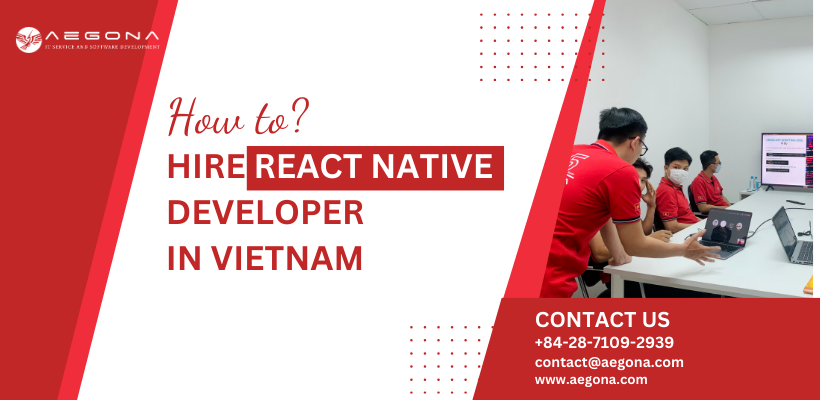
Is hiring a react native developer in Vietnam difficult? How do you hire personnel in this country? Follow this article to learn about this guide!
Saving time and costs are factors in choosing to hire specialists in react native for mobile app development. The factors below give you an overview of this hiring model.
1. Guide to hire react native app developers in Vietnam
To hire mobile app programmers in Vietnam, there are several basic steps you can take:
Define project requirements and goals: Clearly define the necessary requirements for your application. This includes features, user interface, supported platforms, and other technical objectives.
Search through recruiting sources: Utilize freelance platforms like Upwork, Freelancer, Fiverr, or specialized job sites like VietnamWorks, ITviec to find candidates that match your requirements or some outsourcing company like Aegona.
Evaluate profiles and portfolios: Review the individual profiles, experience, and portfolios of candidates to assess their suitability for your project.
Contact and interview candidates: Reach out to candidates via email or messaging to schedule interviews through video calls or face-to-face meetings if possible. During interviews, discuss their experience, skills, and willingness to work.
Discuss project details and sign a contract: If you find a suitable candidate, discuss project specifics, timeline, costs, and necessary commitments. Then sign a contract to officially start the project.
Monitor and maintain communication: Throughout app development, maintain regular communication with the programmer to track progress and make necessary adjustments if needed.
Evaluate and provide feedback: After project completion, evaluate the work results and provide feedback to improve or maintain connections for future collaboration.
Hiring react native mobile app developer requires careful consideration and a meticulous selection process to ensure you choose the most suitable candidate for your project's needs and specific goals.

2. Choosing the appropriate programming language for mobile app development
Selecting the appropriate programming language for mobile app development depends on several factors such as technical goals, supported platforms, and user demographics. Here are some popular programming languages used in mobile app development:
Swift (iOS): Swift is the primary programming language for developing apps on Apple's iOS. It's optimized for building high-performance iOS apps with attractive user interfaces.
Kotlin (Android): Kotlin has become the official programming language for Android app development. It has powerful and flexible features, increasing productivity and reducing errors during development.
Java (Android): Java is one of the most popular programming languages used for Android app development. Although it's no longer the official language for Android, it is still widely used within the mobile app development community.
React Native: React Native is a Facebook framework that allows the creation of cross-platform (iOS and Android) mobile apps using JavaScript. It enables code reuse between platforms and reduces development time.
Flutter: Flutter is a Google framework using the Dart language for building high-performance, cross-platform mobile apps with relatively smooth user interfaces.
Choosing the suitable programming language depends on various factors such as developers' experience, technical goals of the app, target market, and flexibility of the language in code reusability and cross-platform development.
3. Benefits of hiring react native mobile app developer
Using React Native for mobile app development brings several significant advantages:
Cross-platform: React Native enables app development for both iOS and Android from a single source code. This saves time and effort compared to parallel development on separate platforms.
Code reusability: React Native code can be reused between different platforms, reducing redundant work and accelerating the development process.
Near-native performance: React Native provides near-native performance as the app's source code is compiled into specific device machine code.
Large community and strong support: The React Native community is vast and diverse, offering abundant documentation, examples, and support during development.
Rapid updates: React Native often receives frequent updates to improve performance and add new features, keeping your app up-to-date with the latest technology.
High flexibility: This framework allows integration of native components into the app when necessary, providing flexibility in scaling and customizing the app to specific project requirements.
Cost savings: Using React Native can reduce development costs by requiring only one development team capable of working on both iOS and Android platforms.
However, despite its numerous advantages, the choice of programming language still depends on the specific project requirements and the skills of the development team.
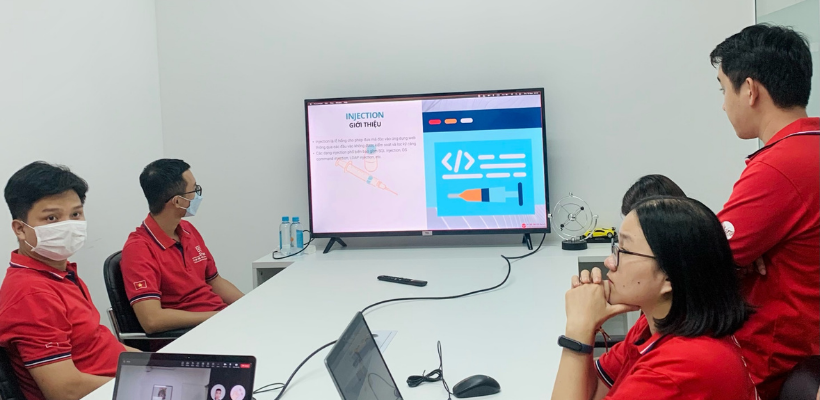
4. Managing React Native mobile app projects abroad
Managing React Native projects for mobile apps abroad requires effective organization and management to ensure successful project implementation. Here are some ways to manage React Native projects overseas:
Use Project Management Tools: Utilize project management tools like Jira, Trello, Asana, or Basecamp to track work progress, assign tasks, and schedule work for team members.
Effective Communication: Use communication tools like email, Skype, Slack, or Microsoft Teams to maintain regular contact with team members. Information and messages need to be clear and accurately conveyed to avoid misunderstandings.
Define and Track Objectives: Set specific and measurable objectives for the project, then track and evaluate progress based on these goals. This ensures that the project progresses as planned.
Clear Task Division: Divide work into smaller parts, clearly defining the responsibilities and roles of each team member. This improves work efficiency and minimizes risks.
Knowledge and Skill Checks: Ensure that team members have the necessary knowledge and skills to work with React Native. Provide training or support to enhance capabilities if needed.
Risk Management: Identify potential risks during development and establish plans to address, mitigate, or avoid them.
Regular Checks and Feedback: Conduct regular checks to ensure product quality. Collect feedback from users and stakeholders to continuously improve the product.
Maintain Regular Communication: Ensure everyone in the team is informed and maintain regular communication to address issues promptly when necessary.
Managing React Native projects abroad requires strong organization, effective communication, and clear information transmission to ensure the project runs smoothly and achieves the set objectives.
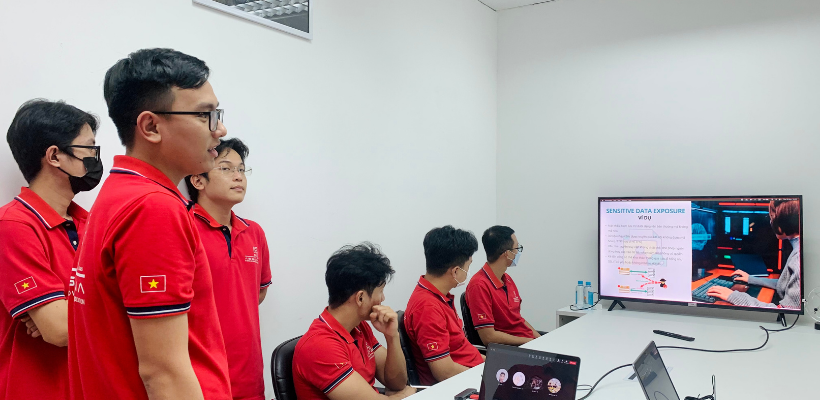
5. Are mobile apps important in business operations?
Mobile apps have become a crucial part of business operations with several significant benefits:
Wide Customer Reach: Mobile apps enable businesses to directly engage and interact with customers quickly and conveniently. Customers can experience your products/services anytime, anywhere.
Increased Interaction and User-Friendliness: Mobile apps create personalized experiences for users, offering personalized information and closer interaction.
Effective Online Sales Channel: Through mobile apps, businesses can establish an efficient online sales channel, boosting sales and attracting new customers.
Building a Strong Brand Image: A high-quality mobile app helps build and reinforce brand image, fostering trust and loyalty from customers.
Data Analytics and Improved Customer Interaction: Mobile apps allow businesses to gather user information for analysis, better understanding customer behavior and needs, thus enhancing business strategies.
Feature Optimization and Service Enhancement: Mobile apps facilitate easy updates and improvements, optimizing user experience based on user feedback.
Strengthening Competitiveness: A high-quality mobile app can enhance a business's competitiveness within the industry and attract more customers from the market.
Therefore, it can be concluded that mobile apps are not just an advertising tool, but an integral part of the modern business strategy. They not only create a new customer outreach channel but also enhance user experience and reinforce brand positioning in the market.
Aegona has guided you on how to hire a react native mobile app in Vietnam. If you are interested in this service, you can contact us at [email protected] to get advice on building a team to develop mobile apps for your business. We will propose the most skilled react native app developers to carry out your project as soon as possible!"
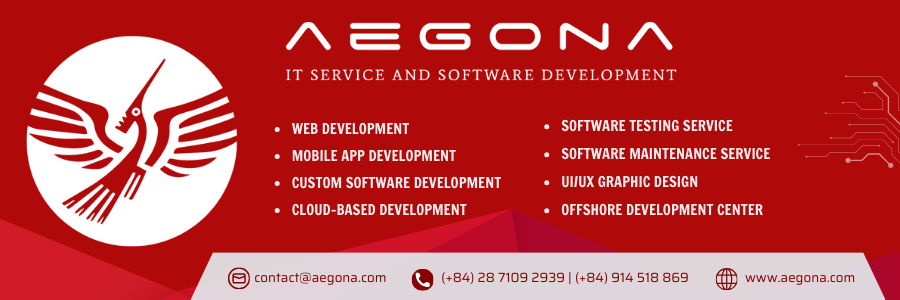
related post

Amid the vibrant working atmosphere at Aegona, this September and October will be more exciting than ever with the kickoff of the 2025 Internal Chess Tournament

As scheduled, the monthly internal event “Happy Hour” returned to Aegona’s office this September afternoon, bringing along a joyful atmosphere filled with connection, laughter, and positivity.

Discover the key software outsourcing trends in 2025, from AI, automation, hybrid outsourcing to workforce training. Understanding these trends helps businesses optimize costs and improve software quality.

On June 16, 2025, following a series of technical discussions and alignment on technology directions, Aegona and Biblia officially signed a strategic cooperation agreement to develop a comprehensive digital publishing platform that integrates both E-books and Audiobooks.
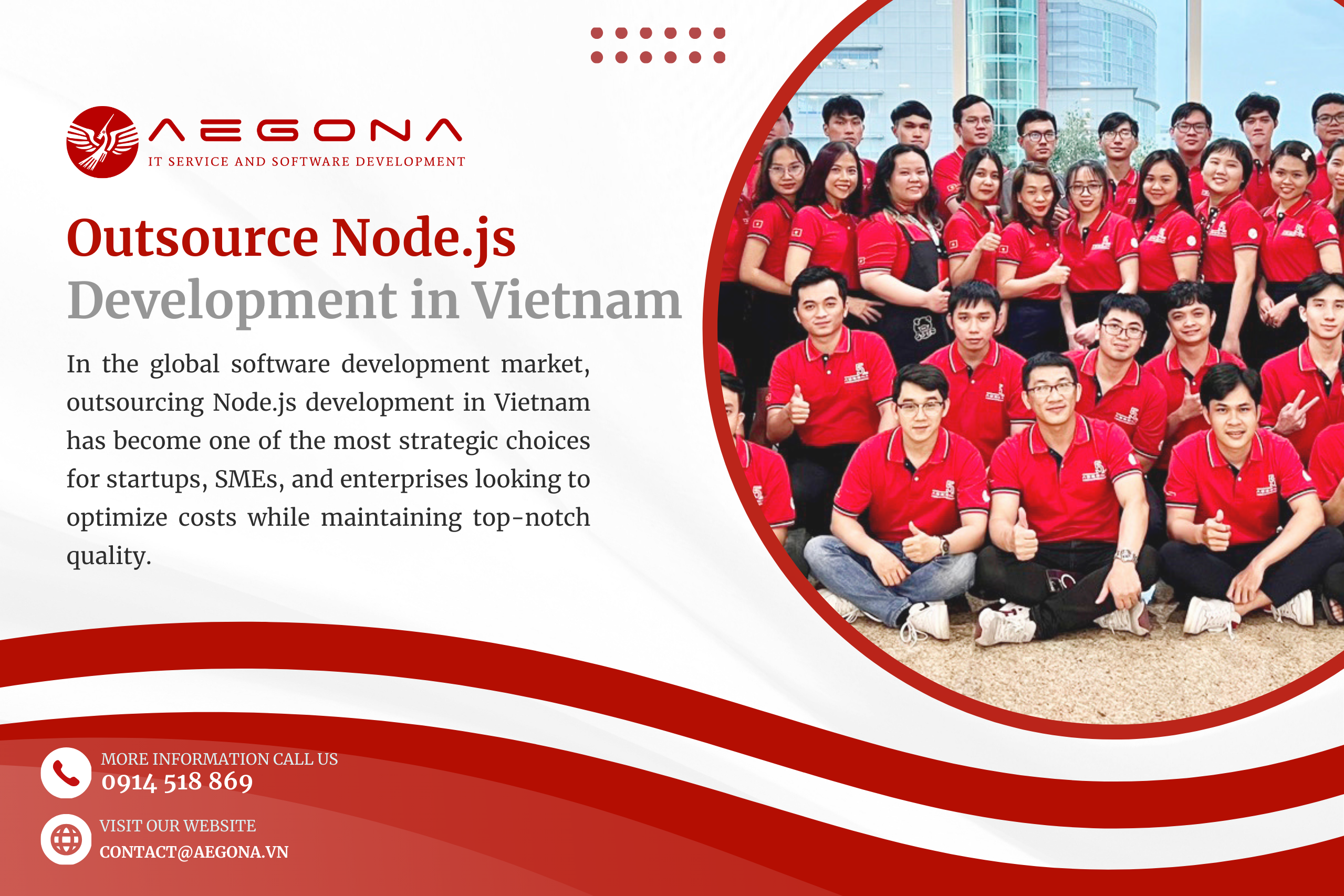
In the global software development market, outsourcing Node.js development in Vietnam has become one of the most strategic choices for startups, SMEs, and enterprises looking to optimize costs while maintaining top-notch quality.
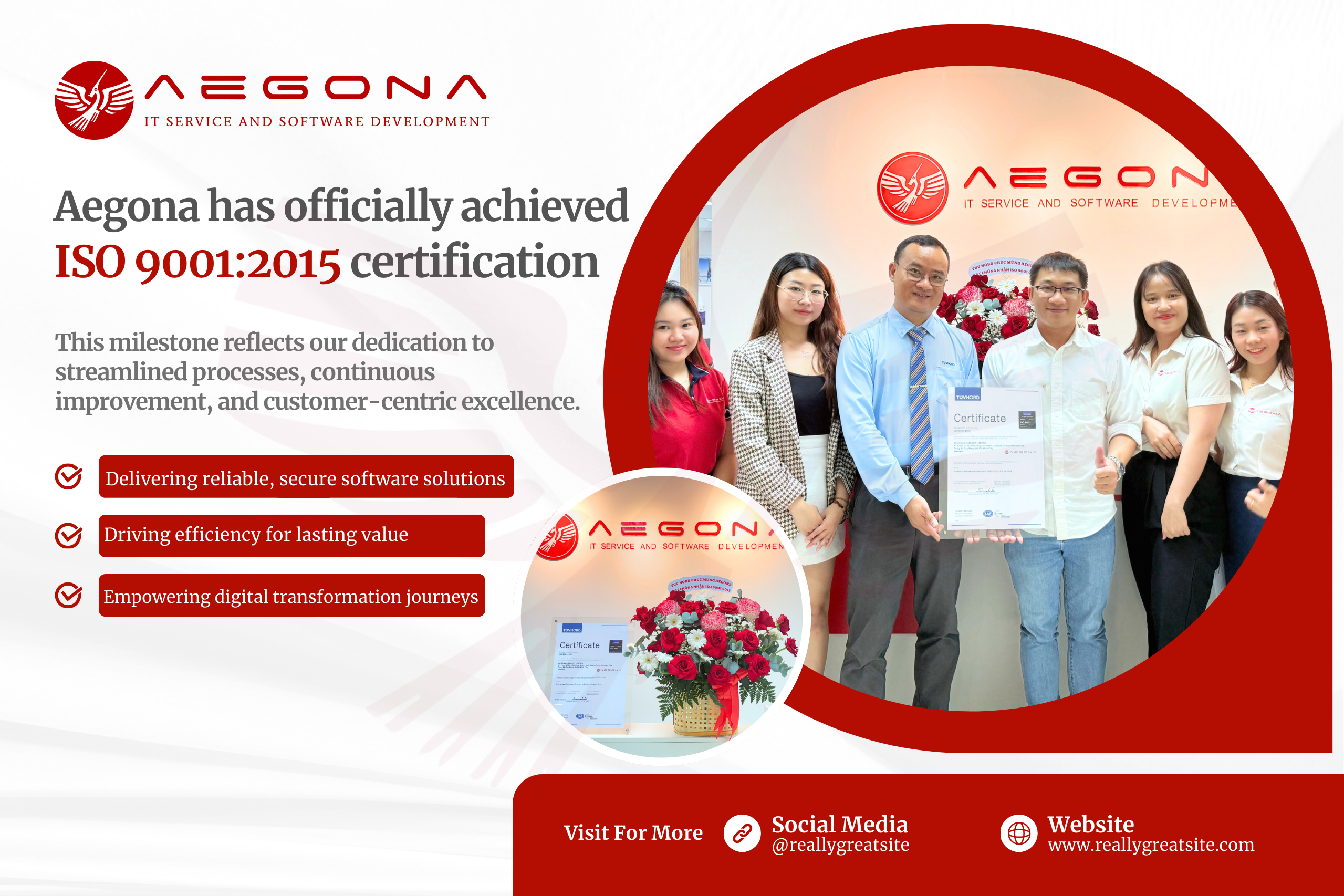
We are proud to announce that Aegona has officially achieved ISO 9001:2015 certification, an internationally recognized standard for quality management systems.

Outsourced IT staff offers a strategic alternative: you get skilled professionals exactly when you need them, without the overhead of permanent hires.

Build custom ERP software to streamline operations, boost efficiency, and fit your business needs. A complete step-by-step guide.

Discover the best open-source inventory systems like InvenTree. Learn key features, benefits, and tools to optimize warehouse and inventory operations.
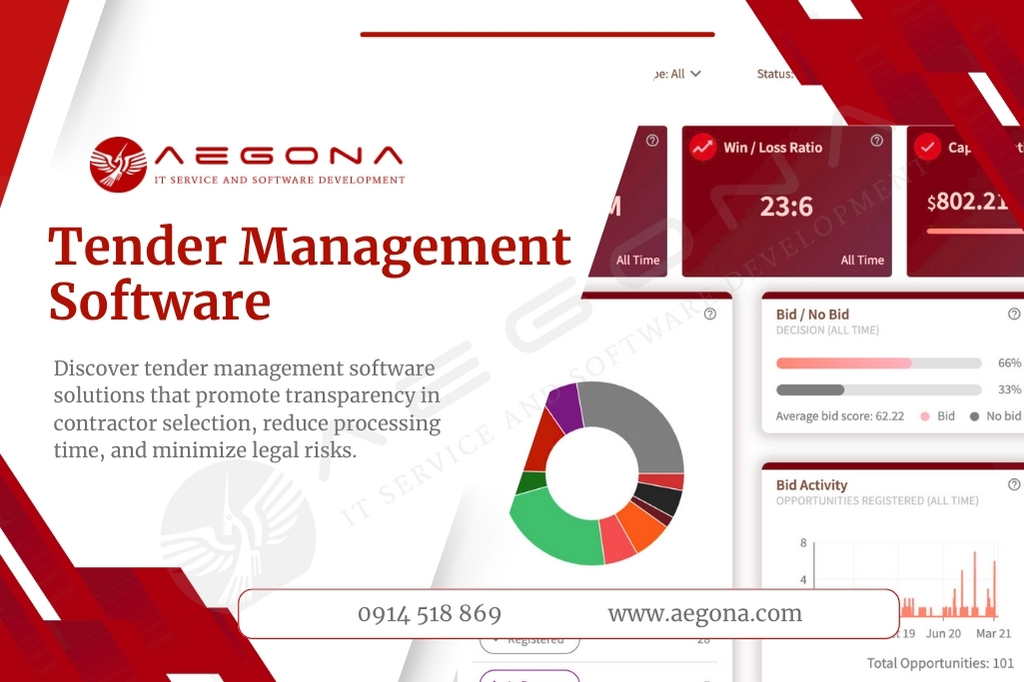
Discover how Tender Management software streamlines bidding, boosts efficiency, and when to choose a custom-built solution.

Discover the benefits of hiring offshore PHP developers in Vietnam and explore a step-by-step process to build a skilled, cost-effective development team.
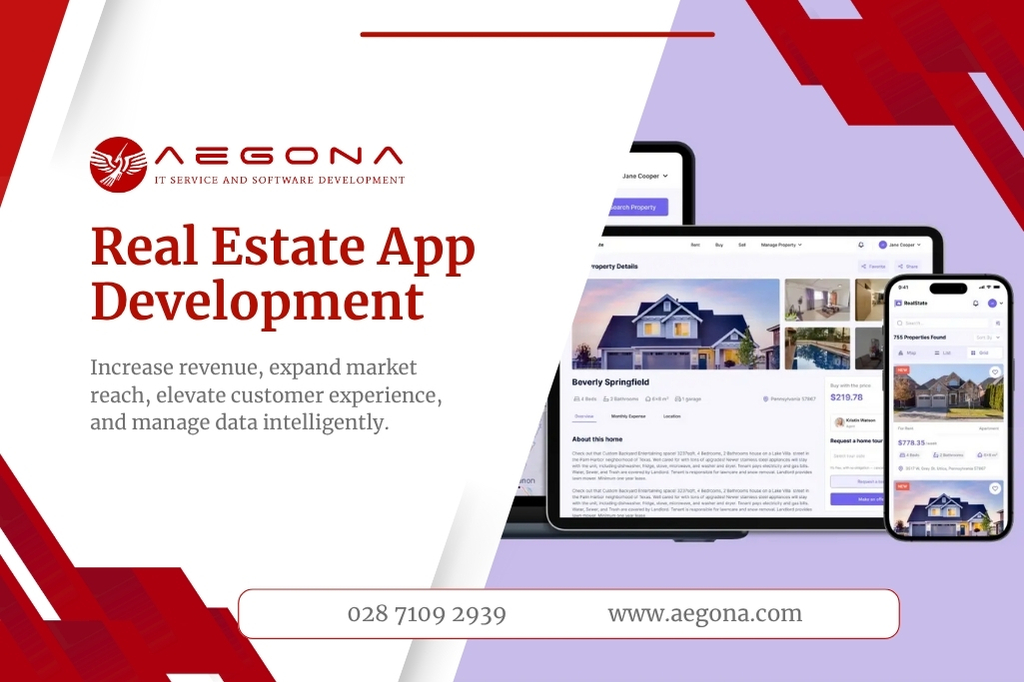
Discover the key benefits and features of real estate app development in Vietnam for businesses aiming to grow in the digital property market.
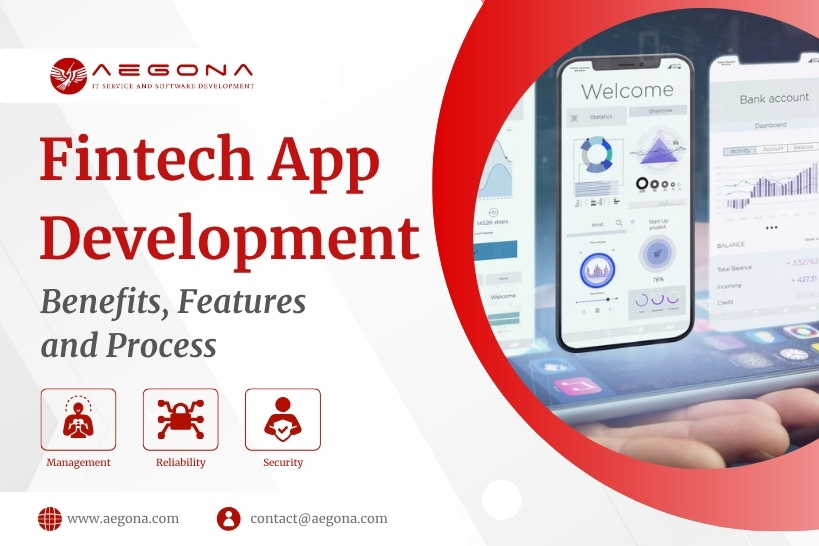
Custom FinTech app development for banking, insurance, payments & more. Secure, scalable, and tailored to your business.
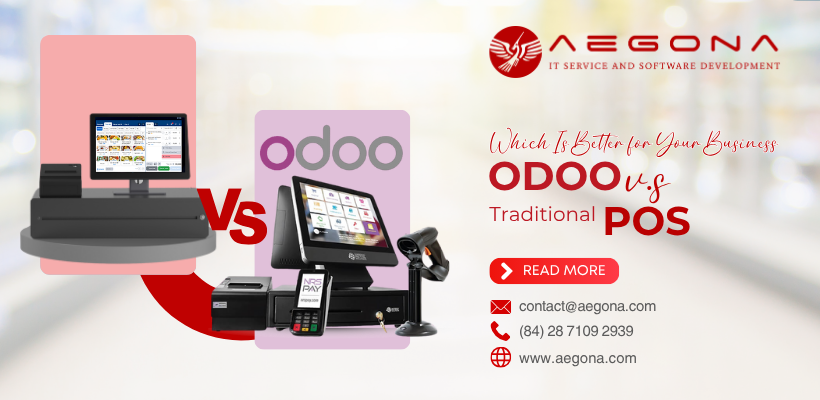
Odoo POS software is becoming an effective alternative to traditional POS systems thanks to its flexible integration capabilities and reasonable cost. Using sales management software plays an essential role in optimizing business operations. This article will help you compare Odoo software and traditional POS systems to find the most suitable option for your business.
